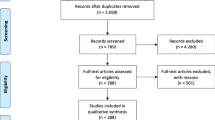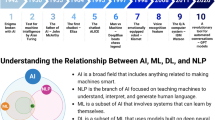Abstract
Will Artificial Intelligence (AI) re-humanize or de-humanize medicine? As AI becomes pervasive in clinical medicine, we argue that the ethical framework that sustains a responsible implementation of such technologies should be reconsidered. The emergence of AI in the clinical setting will challenge our traditional moral boundaries surrounding discussions of patient care since it is unclear how the implementation of AI will promote and enhance the humanistic dimensions of medical practice. There are reasons for concern regarding 1) the anthropological implications of AI in the clinical context; 2) the method(s) and framework(s) used to address ethical issues in medicine; and 3) the impact of AI on clinical practice, particularly in the nature of clinical judgment. These three concerns are examined in hopes of providing pointers for subsequent and more in-depth discussions regarding clinical practice but the training of future health professionals.

Similar content being viewed by others
References
Jotterand, F., and Bosco, C., Keeping the “Human in the Loop” in the Age of Artificial Intelligence. Sci. Eng. Ethics. 26(5):2455–60, 2020.
Fourquet, J., L’archipel français: Naissance d’une nation multiple et divisée [Internet]. Paris: Editions du Seuil; 2019 [cited 2019 Apr 24]. Available from: https://www.lalibrairie.com/livres/l-archipel-francais--naissance-d-une-nation-multiple-et-divisee_0-5623745_9782021406023.html
Hauerwas, S., Suffering Presence: Theological Reflections on Medicine, the Mentally Handicapped, and the Church. 1st edition. Notre Dame, Ind: University of Notre Dame Press; 240, 1986.
Snead, O. C., What It Means to Be Human: The Case for the Body in Public Bioethics. Cambridge, Massachusetts: Harvard University Press 336, 2020.
Verghese, A., Brady, E., Kapur, C. C., and Horwitz, R. I., The Bedside Evaluation: Ritual and Reason. Ann. Intern. Med. 155(8):550–3, 2011.
Jotterand, F., Human dignity and transhumanism: do anthro-technological devices have moral status?. Am. J. Bioeth. AJOB. 10(7):45–52, 2010.
Universal Declaration on Bioethics and Human Rights: UNESCO [Internet]. [cited 2021 Nov 18]. Available from: http://portal.unesco.org/en/ev.php-URL_ID=31058&URL_DO=DO_TOPIC&URL_SECTION=201.html
Yuste, R., Genser, J., and Herrmann, S., It’s Time for Neuro-Rights. 7, 2021.
Goering, S., and Yuste, R., On the Necessity of Ethical Guidelines for Novel Neurotechnologies. Cell. 167(4):882–5, 2016
MacIntyre, A., Dependent Rational Animals: Why Human Beings Need the Virtues. Revised edition. Chicago: Open Court 180, 2001.
Jotterand, F., “Virtue Engineering” and Moral Agency: Will Post-Humans Still Need the Virtues?. AJOB Neurosci. 2(4):3–9 2011.
Pellegrino, E. D., and Thomasma, D, C., A Philosophical Basis of Medical Practice: Toward a Philosophy and Ethic of the Healing Professions. Oxford: Oxford University Press; 1981.
Pellegrino, E. D., and Thomasma, D. C., Virtues in Medical Practice. 1 edition. New York: Oxford University Press 205, 1993.
Wartman, S. A., and Combs, C. D., Reimagining Medical Education in the Age of AI. AMA J. Ethics. 21(2):146–52, 2019.
Acknowledgements
We would like to thank David Larson and Adina Kalet for their helpful feedback on an earlier draft of the manuscript.
Funding
none.
Author information
Authors and Affiliations
Corresponding author
Ethics declarations
Conflicts of Interest
none.
Additional information
Publisher's Note
Springer Nature remains neutral with regard to jurisdictional claims in published maps and institutional affiliations.
Rights and permissions
About this article
Cite this article
Jotterand, F., Bosco, C. Artificial Intelligence in Medicine: A Sword of Damocles?. J Med Syst 46, 9 (2022). https://doi.org/10.1007/s10916-021-01796-7
Received:
Accepted:
Published:
DOI: https://doi.org/10.1007/s10916-021-01796-7




